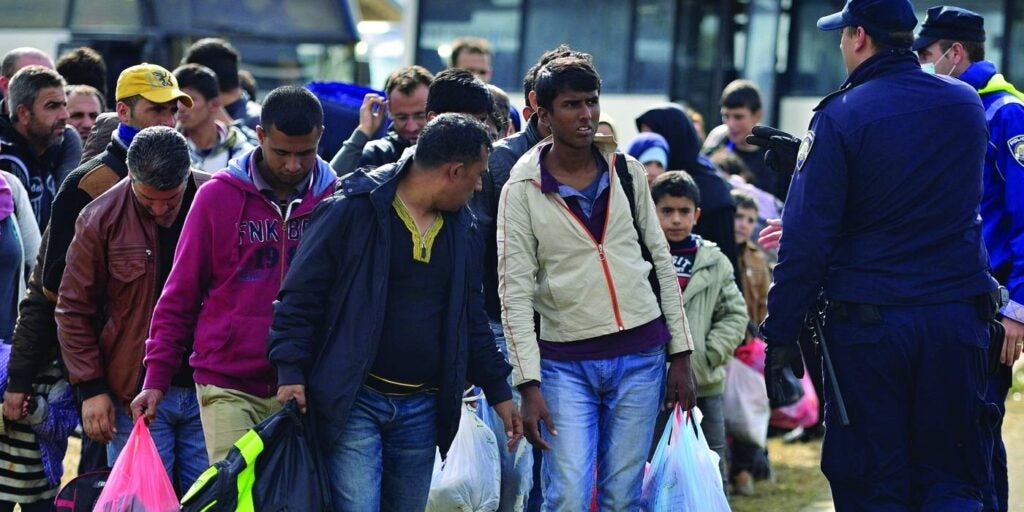

When thousands of weary migrants, mostly unaccompanied minors, crossed the U.S.-Mexico border in the summer of 2014, the Catholic Charities network responded, providing these weary and desperate travelers with a place to rest, food, medical care, clothes, supplies, and, above all, compassion.
After being apprehended by U.S. Customs and Border Patrol (CBP) and then released to travel to other places in the United States, thousands of migrants were dropped off at bus stations close to the border, but they were in no condition to travel.
Catholic Charities of the Rio Grande Valley in McAllen, Texas, set up a respite center at a parish just two blocks from the bus station. They invited the traveling migrants to come for a few hours to shower, find new clothing, eat, rest, and get supplies for their journey. Volunteer doctors provided medical care, and the Salvation Army provided hot meals. Volunteers organized donated clothing of all sizes, personal products, and baby supplies on several tables for the families to choose from.
Catholic Community Services in Tucson first worked out of a back room at the bus station to provide comfort and hospitality to the destitute strangers. In partnership with other organizations and with the help of numerous volunteers and donations, they distributed clothing and toiletries; prepared travel packs of food, supplies, and blankets; helped families make contact with their relatives; reviewed with them their travel itineraries and transfer points; provided hot meals, and for some, arranged overnight accommodations.
“Our work is purely humanitarian,” said Teresa Cavendish, director of operations for Catholic Community Services of Southern Arizona in Tucson. “These people have been given permission to travel. We are just working to make a long trip more bearable and to help them move forward with their journey.”
Thousands of unaccompanied minors as well as high numbers of single parents with children crossed the border in hopes of finding a better life in the United States. They were transferred to CBP facilities, where CBP determined whether they had family members or friends in the United States willing to sponsor and house them while they await a deportation hearing.
The migrants were not in good condition when they were released by CBP. Besides being exhausted, they had not bathed for weeks and their clothes were torn and dirty. They also had not eaten well or had enough water during their journey. Some had serious medical needs. They had little or no money, food, and supplies for the long bus ride ahead, a trip of three or four days for many of them. Further, they did not speak English, and didn’t fully understand where they were going and the bus transfers they would need to make to reach their destinations. At the respite centers, they found welcome, assistance, and rejuvenation.
“The people who leave [the respite center] for the bus a few hours later are different from the ones who walked in,” said Kristan Schlichte, CCUSA’s senior director of membership. “They have more confidence, more self-esteem. The parents hold their children’s hands with more strength and authority. It’s amazing to see how human kindness can have such a profound effect.”








